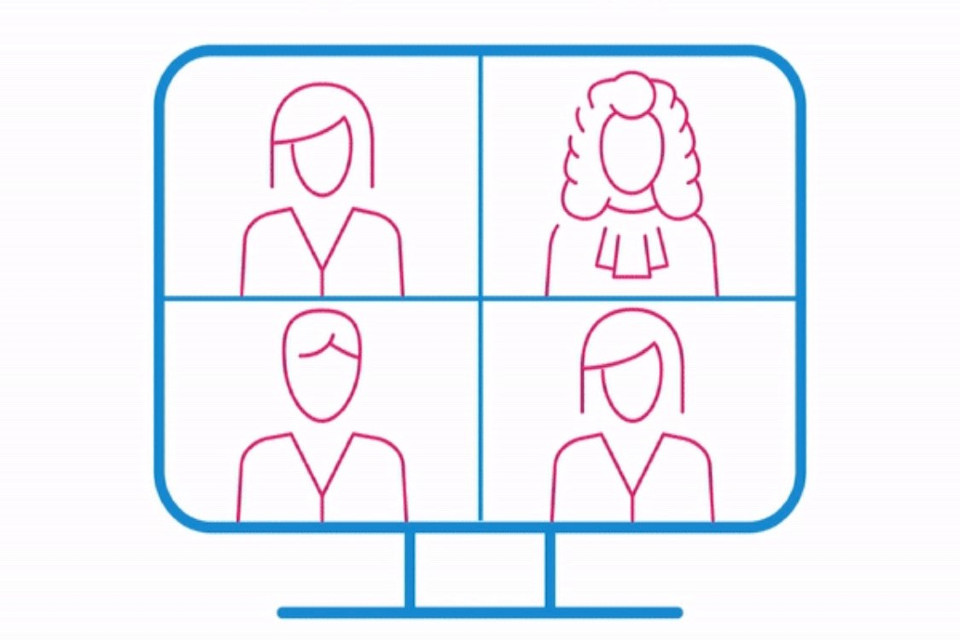HMCTS services: Remote hearing channels (crime)
Many criminal hearings can take place using video or audio technology, removing the need for participants to attend court in person.
Applies to England and Wales
Audio and video technologies have long played a role in courts and tribunals, but recently we have been rolling out new video conferencing technology, known as the Cloud Video Platform (CVP), to support a range of remote hearings across England and Wales.
During the coronavirus (COVID-19) pandemic we accelerated our plans, so we could meet social distancing requirements and cut down the need for participants to travel to court. This, in turn, has the potential to save time and costs for those involved.
The final decision about using video technology in any criminal hearing is always taken by the judge or magistrates, and only when they believe it to be in the interests of justice to do so.

Illustration of computer screen with 4 video call participants
Key statistics
- 151 magistrates’ courts across England and Wales have Cloud Video Platform (CVP) available for use in video enabled hearings
- 225,000 hearings have taken place using CVP in magistrates’ and Crown Courts (figure is taken from management information on HMCTS case management systems rather than official statistics)
- over 4,000 users can use CVP in video enabled hearings at the same time
Aims and progress
| Objectives | Outputs | Outcomes |
|---|---|---|
| To make it possible for participants in a hearing to join remotely, without having to travel to court | Cloud Video Platform (CVP), our chosen videoconferencing technology, has been available in all criminal courts with video capability from October 2020 | Remote hearings have made it possible for justice to continue throughout the coronavirus (COVID-19 outbreak, supporting social distancing and self-isolation |
| To enable defendants to join hearings over a video link, without needing to appear in person | Types of hearings which can be held over video link now include remand hearings, mentions, pre-trial preparation, bail hearings and sentencing | A solution has been designed and tested with users and judges to support simultaneous translation in video hearings by joining two CVP ‘rooms’ together to create an additional audio channel |
| To save time and costs for hearing participants and the criminal justice system | Over 900 CVP ‘rooms’ can be in use at once, with capacity for over 4,000 users |
Who has the project worked with?
- judiciary
- police
- prisons
- Probation Service
- HMCTS operational staff
What users say
His Honour Judge Martyn Levett:
I am a great fan and supporter of this CVP system. It has changed and transformed the way we work and will have to work into the future during the pandemic.
His Honour Judge Guy Kearl QC:
In times of uncertainty, confirmation that the rule of law endures and justice will be served is a source of profound reassurance to us all.
This secure video conferencing technology is versatile and provides the functions essential to deliver a range of criminal hearings: I am delighted to be involved in its successful introduction.
CVP users:
The remote experience was fantastic. We could participate uninterrupted from the comfort of our own homes, worldwide.
Thank you so much for providing an invaluable service without which many of us would have been unable to follow a historic case.
Looking ahead in 2021
We will expand our use of video technology, supporting simultaneous translation with an interpreter appearing remotely and using multiple CVP rooms to support multi handed trials. We will also seek to deliver a CVP solution which will enable confidential conversations to take place between clients and lawyers and other participants.